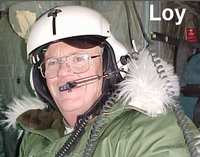Just Hired Too Many. So Sorry...
 The good news, the TSA tells us, is that it's
going to save money, and that security won't be any worse than it
is, now. The bad news is, it's going to take longer to get through
security. The bad news for screeners is -- better than one out of
eight (12.6%) will be fired, by the end of the Summer, with half of
those going home right after Memorial Day.
The good news, the TSA tells us, is that it's
going to save money, and that security won't be any worse than it
is, now. The bad news is, it's going to take longer to get through
security. The bad news for screeners is -- better than one out of
eight (12.6%) will be fired, by the end of the Summer, with half of
those going home right after Memorial Day.
The Transportation Security Administration will make staffing
adjustments to its screener workforce and change the way law
enforcement officers are deployed at airports as part of an effort
to become a more efficient and effective security agency, pensioned
Adm. James M. Loy, TSA administrator, said Wednesday.
At a press conference, Loy outlined a wide range of measures
that will refine aviation security and soon provide $2.3 billion to
airlines to cover additional government-imposed security costs
since the terrorist attacks of September 11, 2001. Changes include
a reduction and realignment of the screener workforce and a lifting
of the requirement that law enforcement officers be posted at
airport checkpoints. He didn't explain the criteria he'd use,
to employ this mass-firing to help meet the agency's diversity
quotas.
TSA's screener workforce totaled 55,600 on March 31. Due in part
to misjudging how much the budget would be and how many people it
would take to do the job, the agency will cut 3,000 positions by
May 31 and another 3,000 positions by September 30, the end of the
2003 fiscal year.
Hiring cap end-run lands on Loy's lap.
 The 45,000-person legally mandated cap on screener
headcount was handily subverted by the TSA, which hired an
extra 9000 or so, calling them, "temporary workers," with
contracts as long as five years. Those "temporary" workers, being
under such a contract, would presumably be immune from this round
of firings; and the so-called "permanent" workers will get the
axe.
The 45,000-person legally mandated cap on screener
headcount was handily subverted by the TSA, which hired an
extra 9000 or so, calling them, "temporary workers," with
contracts as long as five years. Those "temporary" workers, being
under such a contract, would presumably be immune from this round
of firings; and the so-called "permanent" workers will get the
axe.
Having a first look at reality...
"While we still live in a dangerous world, it also is time to
assess our workplace requirements in relation to budget realities,"
Loy said. "This means looking at the level of screener staffing at
every airport, how many are part-time, how many are full-time, and
whether they are on duty at the right time, when passenger traffic
is heaviest." The revelation that he apparently hadn't looked
before has, so far, met with congressional silence.
"My pledge to the American people is to respond to our new
challenges with the same dedication and energy as we did after the
9/11 tragedy, building in the efficiencies of a good steward
without diminishing the high level of security we have
achieved."
In the interest of trimming fat budgets, Loy didn't mention any
pay reductions for his airport czars, whose salaries alone roughly
match those of US Senators -- and most of whom, at the top levels,
are already drawing big retirement checks from the military, the
FBI, the SS, and other taxpayer-funded former employers.
(We called the TSA to get some answers, just before 1PM, and
were promised a reply "from one of our specialists." They're
probably out of "specialists" again, as our call was never
returned.)
Now they know...
 The TSA has finished assessing how many screener
positions -- full- and part-time -- are needed at each airport. The
assessment will result in a more-efficient use of personnel during
peak and non-peak flight times, wasting fewer taxpayer dollars,
while avoiding "significant" increases in passenger wait times at
security checkpoints. Some vacant screener positions will not be
filled, within the parameters of security needs.
The TSA has finished assessing how many screener
positions -- full- and part-time -- are needed at each airport. The
assessment will result in a more-efficient use of personnel during
peak and non-peak flight times, wasting fewer taxpayer dollars,
while avoiding "significant" increases in passenger wait times at
security checkpoints. Some vacant screener positions will not be
filled, within the parameters of security needs.
Whenever possible, Loy said, TSA will use attrition - estimated
at about 700 jobs a month -- to ease pressures of the workforce
reductions. In what seems a new twist, he also mentioned that now
poor job performance, legal violations or inappropriate behavior
will also result in reductions.
We'll Give You $5000 to Move to Orlando.
Qualified screeners at airports with too large a workforce may
seek transfers to airports needing screeners, and screeners may
move from working full-time to working part-time. A partial
relocation gift ($5000) will be available for screeners who
transfer to certain airports.
"This will be a difficult time, but I have complete confidence
that TSA screeners will continue to deliver the high levels of
security and customer service that the American public deserves and
has come to expect," Loy said.
To help TSA meet its budget, the pension-drawing Admiral Loy,
also announced a hiring cap for professional and administrative
positions at headquarters and on administrative positions at
airports.
Less Law Enforcement, Better Security:
 Loy also announced a plan to provide a
"more-flexible" approach to the use of law enforcement officers at
security checkpoints, which he said "makes sense and will make
security stronger." Effective May 31, the TSA will no longer
require a law enforcement officer at every checkpoint. "Security
will be strengthened because officers will be seen by more
passengers and will be able to do more surveillance, while still
responding to incidents at passenger and baggage checkpoints."
Loy also announced a plan to provide a
"more-flexible" approach to the use of law enforcement officers at
security checkpoints, which he said "makes sense and will make
security stronger." Effective May 31, the TSA will no longer
require a law enforcement officer at every checkpoint. "Security
will be strengthened because officers will be seen by more
passengers and will be able to do more surveillance, while still
responding to incidents at passenger and baggage checkpoints."
Spending more on machines, too.
In addition, Loy announced that he would sign letters of intent
for about 20 airports to provide federal assistance for the
permanent installation of explosive detection equipment. The
letters to airports commit nearly $1 billion of federal funds to
pay for 75 percent of the cost of new or existing capital
improvement projects.
Gotta give that money back some day...
 Finally, Loy noted that the TSA is "working hard" to meet a May
16 congressional deadline for reimbursement of $2.3 billion worth
of airline security fees to air carriers. He said allocations
would be made in proportion to the amounts each carrier paid to the
federal government since late 2001.
Finally, Loy noted that the TSA is "working hard" to meet a May
16 congressional deadline for reimbursement of $2.3 billion worth
of airline security fees to air carriers. He said allocations
would be made in proportion to the amounts each carrier paid to the
federal government since late 2001.
Loy cautioned that the program was "not simply a cash hand-out
for airlines to restore them to economic health."
Strings Attached: TSA Control Over Airlines' Pay
"In order to receive this money, Congress requires that carriers
must document their security costs and, in some cases, sign
contracts with TSA limiting the amount of compensation their
top executives can receive over a twelve month period," Loy
said, without citing any constitutional authority for the
government to dictate salaries and benefits awarded
by private enterprises.
 Aero-News: Quote of the Day (12.09.25)
Aero-News: Quote of the Day (12.09.25) ANN's Daily Aero-Term (12.09.25): High Speed Taxiway
ANN's Daily Aero-Term (12.09.25): High Speed Taxiway ANN's Daily Aero-Linx (12.09.25)
ANN's Daily Aero-Linx (12.09.25) NTSB Final Report: Diamond Aircraft Ind Inc DA20C1 (A1); Robinson Helicopter R44
NTSB Final Report: Diamond Aircraft Ind Inc DA20C1 (A1); Robinson Helicopter R44 ANN FAQ: Q&A 101
ANN FAQ: Q&A 101







